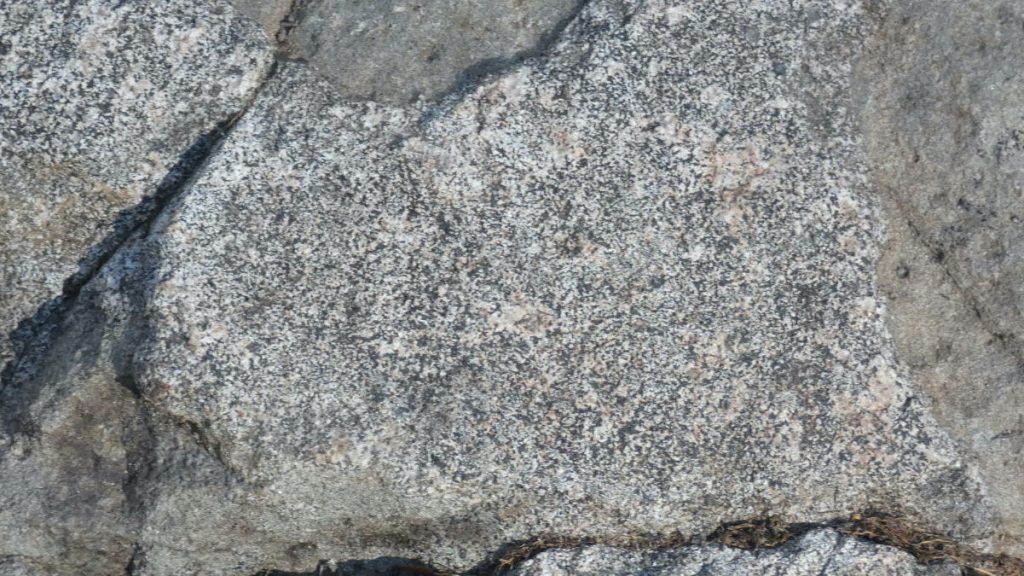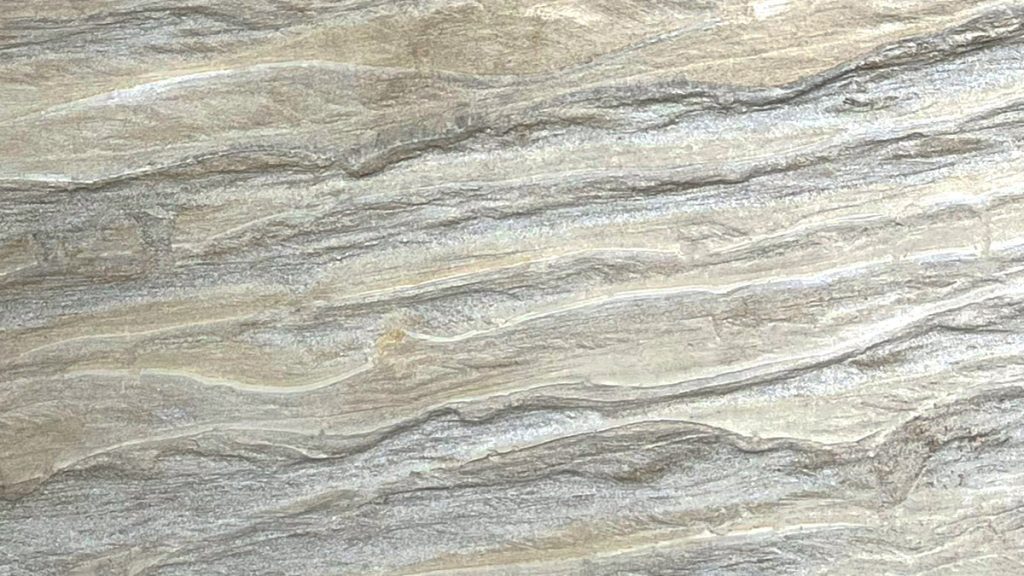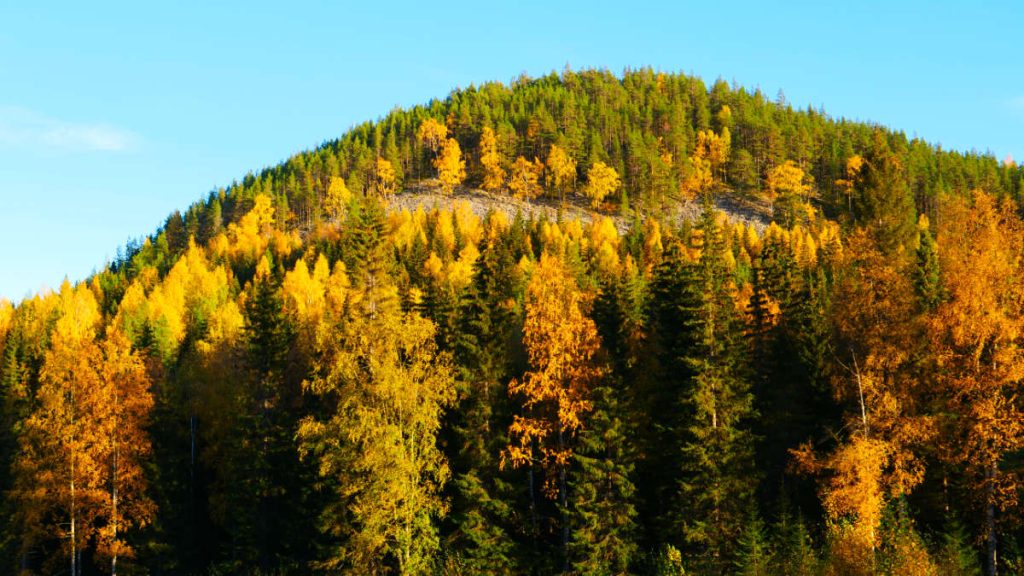Prästberget 2
World famous geological research mountain
In the 1990s a group of the world’s sharpest geologists stood in front of Mt Prästberget and looked straight into rock wall. What did they see? Here they could observe how a red and a black mass of molten rock, magma, had formed various structures in the 1,500 million year old magma chamber. The observations made by scientists from all over the world at Mt Prästberget have contributed to great scientific advances.
Masses of molten rock became red granite and dark gabbro
Two melts pushed their way up here from deep within the earth at the same time but separately. The magmas were of completely contrasting compositions and so behaved in different ways.
When in due course the magmas cooled and became solid they formed rocks. One of the magmas was dark, almost black and became gabbro. The other one was red in colour and became granite.

Pulses of magma filled the chamber
Pulses of warm magma were continuously adding to the magma chamber from below. Magma that had already solidified could then heat up and become liquid again. The magmas interacted in batches, forming different patterns depending on whether they were liquid at the same time or not. Gabbro and granite melt at different temperatures. Gabbro is several hundred degrees warmer when melted compared to granite. The difference in temperatures between the two magmas meant that they would not fully blend everywhere.

Magma mingling – "pillows" of gabbro in granite
In many places you can see patterns of the gabbro in the granite, looking like pillows. This is called magma mingling and occurred at the time when both magma types were partially liquid at the same time.
The magmas may have been cold, hot or tepid at the time of the encounters. Around the gabbro you can sometimes spot a darker outer edge; this appeared when the warmer gabbro cooled off quicker in contact with the colder granite.

Magmatic breccia – angular fragments of gabbro in granite
At times the gabbro magma had started to cool off or become cold before a new pulse of hot granite magma came pushing upwards. This would cause the gabbro to crack and break into angular fragments. This is called magmatic breccia.
In case the almost solid granite encountered a pulse of hot gabbro, the granite may have been a bit burned by the gabbro. This would be seen as a white edge around the granite.

Magma mixing - mixed magmas
When magma had the possibility to harden slowly it remained warm for longer and heated up its environment. Magmas of different compositions could blend and become solid at the same time. Crystals from one of the magmas could merge with another and eventually dissolve. A new rock was formed, a sort of hybrid rock.
Hybrids contain minerals that in normal circumstances would not co-exist. The rocks can be difficult to see and identify since they can appear in so many different ways.

Look into a magma chamber
At Prästberget 2 you can gain good overview of the magma chamber, but if you want a closer look here is the place for it:
Stadsberget
Forsnacken
Trätojordsbacken
Prästberget 1
Koviken (primarily for geologists)

The River Indalsälven
Prior to the emptying of Lake Ragundasjön it was located by Mt Prästberget. Nowadays the River Indalsälven runs by the mountain. When the lake was emptied a high waterfall ran across the present riverbed of the River Indalsälven between Mt Prästberget and Lillkvarnbäcken. On the bottom of the lake was a barrier in the shape of a ridge that barred the passage of water and was the root of the waterfall. After one and a half week the water broke through the barrier to form what presently constitutes the riverbed of Indalsälven. Upstream at a rock threshold a new waterfall was formed, in our days serving a hydroelectric power station, Hammarforsen in Hammarstrand.

More information
Sites to visit on Theme Continental Drift
More site photos



Places to visit nearby
Practicalities
Accessibility
See Accessibility.
Activities
Stop for a break and enjoy the fine views over the River Indalsälven and the previous Lake Ragundasjön. See also Activities in Ragunda.
Eating and drinking
The nearest grocery store, café and eatery are in Hammarstrand. See also Eating and drinking in Ragunda.
Accommodation
Missing on site, but various options are available nearby. See Accommodation in Ragunda.
Getting here
SWEREF 99 TM N: 6 997 500 E: 569 660
WGS84 N: 63,100187° E: 16,380062°



